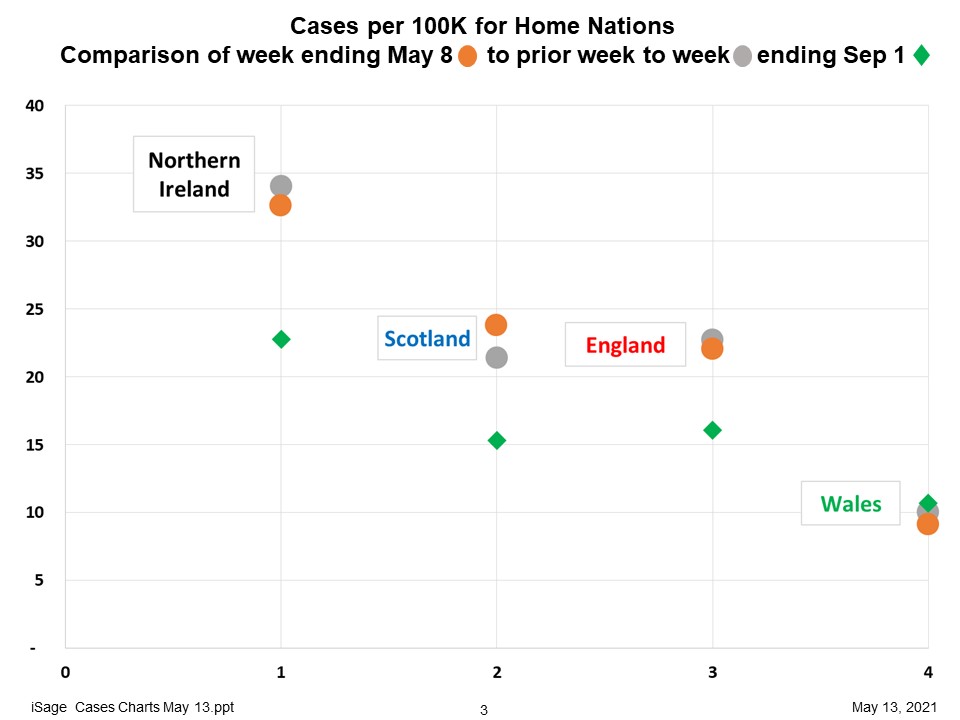
The @NAOorguk issued a report criticising the Government over its failure to prepare for the pandemic.
The report has received surprisingly little air time, so here is a thread summarising some of the findings.
TL;DR A lot of lessons to learn.
1/15
The report has received surprisingly little air time, so here is a thread summarising some of the findings.
TL;DR A lot of lessons to learn.
1/15
https://twitter.com/NAOorguk/status/1394903190869524480?s=20
The report looks at UK's preparedness for "unforseen events and extreme shocks", not just pandemic preparedness.
It concludes
"The UK was not as prepared for the pandemic as it could have been, and government lacked detailed contingency plans to manage the unfolding situation."
It concludes
"The UK was not as prepared for the pandemic as it could have been, and government lacked detailed contingency plans to manage the unfolding situation."
While the report notes
"many examples of impressive national and local responses to the urgent need for healthcare and economic support"...
3/15
"many examples of impressive national and local responses to the urgent need for healthcare and economic support"...
3/15
... it also highlights
"the importance of government adopting a more systematic approach to preparing for crises, improving the resilience of key services and making better use of data. "
4/15
"the importance of government adopting a more systematic approach to preparing for crises, improving the resilience of key services and making better use of data. "
4/15
and suggests
"being transparent, properly documenting decisions and managing conflicts of interest is essential if government is to maintain public trust that taxpayers’ money is being spent appropriately and fairly."
Specifically the report found:...
5/15
"being transparent, properly documenting decisions and managing conflicts of interest is essential if government is to maintain public trust that taxpayers’ money is being spent appropriately and fairly."
Specifically the report found:...
5/15
"That many of the contracts awarded during the pandemic had not been published on time."
These last points are part of the reason why @EveryDoctorUK and @GoodLawProject are taking the government to court over PPE contract procurement.
theguardian.com/politics/2021/…
6/15
These last points are part of the reason why @EveryDoctorUK and @GoodLawProject are taking the government to court over PPE contract procurement.
theguardian.com/politics/2021/…
6/15
Some of the other critiques in the report include:
"Government lacked a playbook for many aspects of its response including:
- identifying and supporting a large population advised to shield.
- employment support schemes.
financial support to local authorities
7/15
"Government lacked a playbook for many aspects of its response including:
- identifying and supporting a large population advised to shield.
- employment support schemes.
financial support to local authorities
7/15
- managing mass disruption to schooling on the scale caused by COVID-19."
"communications from government were not always clear and timely"
- Specifically with regards to PPE:
"guidance on PPE changed 30 times up to 31 July 2020"
With regards to schools: ...
8/15
"communications from government were not always clear and timely"
- Specifically with regards to PPE:
"guidance on PPE changed 30 times up to 31 July 2020"
With regards to schools: ...
8/15
"Between 16 March and 1 May 2020, DfE published 148 new guidance documents and updates to existing material"
"...guidance was often published at the end of the week or late in the evening, putting schools under pressure, especially when guidance was for immediate implementation."
"...guidance was often published at the end of the week or late in the evening, putting schools under pressure, especially when guidance was for immediate implementation."
The report also highlighted that "timely sharing of data has not always occurred, and legacy IT issues remain challenging"
"- Limitations in the accuracy and completeness of the data used and collected by government have affected some pandemic response measures."
10/15
"- Limitations in the accuracy and completeness of the data used and collected by government have affected some pandemic response measures."
10/15
"- Data limitations affected the government’s ability to assess the effectiveness and value for money of some measures" and
"- Government’s ability to forecast changes in demand, and to update programmes based on updated demand, has been variable."
11/15
"- Government’s ability to forecast changes in demand, and to update programmes based on updated demand, has been variable."
11/15
This is one of the more telling critiques
"Issues predating the pandemic made responding to the crisis more difficult in some areas."
along with this subtle point:
"Universal offers of support can be developed at speed but may not always be as cost-effective as targeted offers."
"Issues predating the pandemic made responding to the crisis more difficult in some areas."
along with this subtle point:
"Universal offers of support can be developed at speed but may not always be as cost-effective as targeted offers."
The report also looks at inequity and inequality noting:
"The pandemic has disproportionately impacted specific groups of people"
"Employment support programmes helped many people, but some people were not eligible. "
13/15
"The pandemic has disproportionately impacted specific groups of people"
"Employment support programmes helped many people, but some people were not eligible. "
13/15
The report also suggests a number of problems that need addressing
"An unreformed adult social care system, workforce shortages, issues caused by legacy IT systems, and the financial pressure felt by central and local government all require long-term solutions."
14/515
"An unreformed adult social care system, workforce shortages, issues caused by legacy IT systems, and the financial pressure felt by central and local government all require long-term solutions."
14/515
It's a long report, but worth a look through if you want to know in more detail about what the government has done well and, perhaps more importantly the lessons that should have been learned and have come at such a high price during this pandemic.
nao.org.uk/wp-content/upl…
\ENDS
nao.org.uk/wp-content/upl…
\ENDS
• • •
Missing some Tweet in this thread? You can try to
force a refresh














